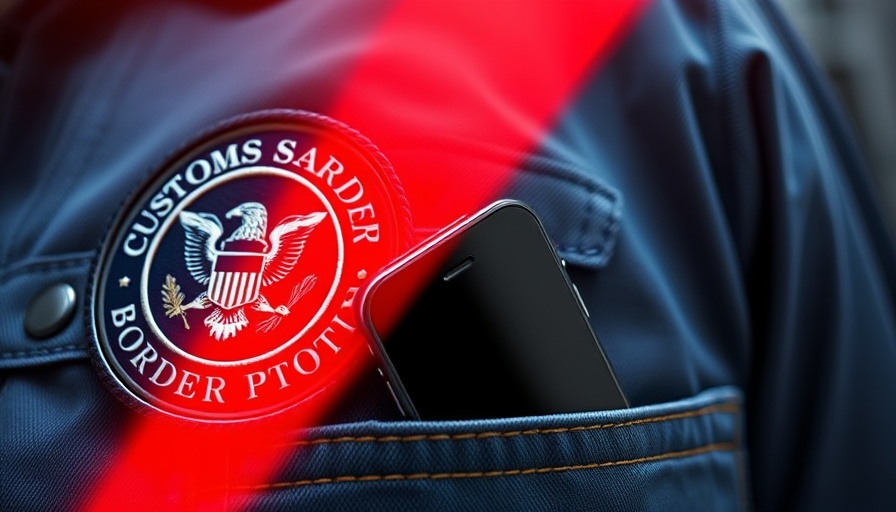
The Growing Concern Over Phone Searches at US Borders
As the climate of travel continues to shift dramatically, particularly at borders, many travelers are expressing deep concern regarding their digital privacy. Since the current administration took office, increasing numbers of foreign visitors and U.S. citizens have reported invasive searches of their electronic devices by U.S. Customs and Border Protection (CBP) officials. With these phone inspections, travelers are now re-evaluating their digital practices and the extent of sensitive information they carry. This guide aims to inform business executives, managers, and decision-makers about protecting themselves and their data when crossing the border.
Understanding CBP’s Powers
Under current policies, CBP officials possess broad authority when it comes to searching travelers’ devices at the border. This includes the ability to conduct physical inspections or utilize forensic tools to extract extensive data from devices. For many travelers, the unsettling reality is that entering the United States essentially means surrendering access to personal and, potentially, sensitive information.
Practical Steps for Digital Security
To protect your data while traveling, consider several key strategies:
- Use a Burner Phone: Executives traveling to the U.S. may want to utilize a separate device—such as a burner phone—that contains minimal personal information. This can serve to minimize the risk of sensitive data being exposed.
- Encrypt Sensitive Data: If you must bring important data across the border, ensure that it is encrypted. This adds an additional layer of protection, making it more difficult for unauthorized access during searches.
- Backing Up Before Travel: Maintain a backup of your phone’s data elsewhere. This provides peace of mind that your valuable information remains secured in the event of device seizure or loss.
The Real-World Implications for Executives
For senior managers and business decision-makers, awareness of these security concerns is critical. The bounds of privacy rights at the border represent crucial considerations for corporate travel policies. The potential for device searches necessitates a proactive approach to data management, including training for employees on how to handle their devices while traveling internationally. Understanding the global context can also empower executives to develop comprehensive strategies to navigate these challenges effectively.
Future Considerations for Travelers
As travel norms evolve, the likelihood of border searches on devices may continue to escalate. Companies and individuals alike must remain fully informed about their rights while crossing borders, and be prepared to adapt their digital practices to mitigate potential risks. The implications extend beyond mere inconvenience; they speak to the very fabric of privacy and security in an increasingly connected world.
As travelers depend more and more on digital devices, corporate travelers must recognize their role in enforcing information security and protecting personal data. Ensuring that comprehensive travel and security protocols are in place should become a priority in every business operation, setting standards that prioritize both mobility and security.
 Add Row
Add Row  Add
Add 




Write A Comment